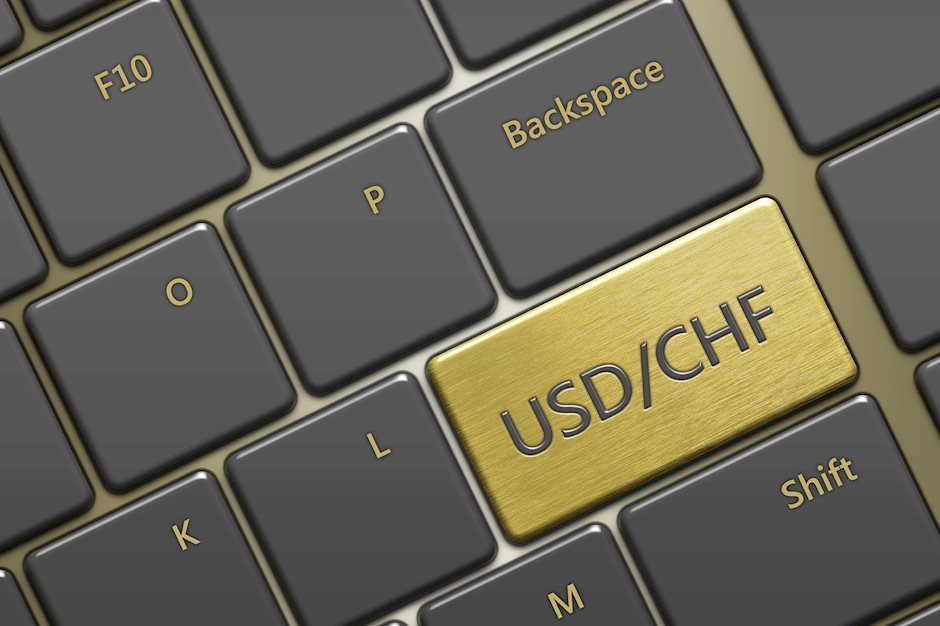USD/CHF steadies near 0.8650, upside seems possible amid higher US Treasury yields
- USD/CHF may appreciate further due to a stronger US Dollar amid higher Treasury yields.
- The US Dollar also receives support from the market caution ahead of the US presidential election.
- The safe-haven demand for the Swiss Franc is undermined due to easing all-out war fear in the Middle East.

USD/CHF remains subdued following the losses from the previous session, hovering around 0.8650 during Asian trading hours on Tuesday. This downside of the pair could be limited due to solid US Dollar (USD) amid higher Treasury yields.
The US Dollar gains support due to market caution ahead of the upcoming US election in November. Market sentiment increasingly favors Former President Donald Trump. According to polling site FiveThirtyEight, Trump's possibility of winning the US election has increased to 52% compared to 48% for Vice President Kamala Harris.
The US Dollar Index (DXY), which measures the value of the US Dollar against its six major currencies, trades around 104.30 with 2-year and 10-year yields on US Treasury bonds standing at 4.12% and 4.27%, respectively, at the time of writing.
The Swiss Franc (CHF) faced challenges due to rising expectations for another interest rate cut by the Swiss National Bank (SNB) at its upcoming December meeting. Traders are likely to monitor the Consumer Price Index (CPI) for October, which is scheduled for release later this week.
Moreover, the demand for the Swiss Franc as a safe haven may decline as concerns over a potential all-out war in the Middle East have eased with the reduction in military operations. However, according to Reuters, Iran’s Foreign Ministry spokesperson, Esmaeil Baghaei, has suggested the possibility of employing "all available tools" to respond to Israel’s recent attacks on military targets within Iran.
Swiss Franc FAQs
The Swiss Franc (CHF) is Switzerland’s official currency. It is among the top ten most traded currencies globally, reaching volumes that well exceed the size of the Swiss economy. Its value is determined by the broad market sentiment, the country’s economic health or action taken by the Swiss National Bank (SNB), among other factors. Between 2011 and 2015, the Swiss Franc was pegged to the Euro (EUR). The peg was abruptly removed, resulting in a more than 20% increase in the Franc’s value, causing a turmoil in markets. Even though the peg isn’t in force anymore, CHF fortunes tend to be highly correlated with the Euro ones due to the high dependency of the Swiss economy on the neighboring Eurozone.
The Swiss Franc (CHF) is considered a safe-haven asset, or a currency that investors tend to buy in times of market stress. This is due to the perceived status of Switzerland in the world: a stable economy, a strong export sector, big central bank reserves or a longstanding political stance towards neutrality in global conflicts make the country’s currency a good choice for investors fleeing from risks. Turbulent times are likely to strengthen CHF value against other currencies that are seen as more risky to invest in.
The Swiss National Bank (SNB) meets four times a year – once every quarter, less than other major central banks – to decide on monetary policy. The bank aims for an annual inflation rate of less than 2%. When inflation is above target or forecasted to be above target in the foreseeable future, the bank will attempt to tame price growth by raising its policy rate. Higher interest rates are generally positive for the Swiss Franc (CHF) as they lead to higher yields, making the country a more attractive place for investors. On the contrary, lower interest rates tend to weaken CHF.
Macroeconomic data releases in Switzerland are key to assessing the state of the economy and can impact the Swiss Franc’s (CHF) valuation. The Swiss economy is broadly stable, but any sudden change in economic growth, inflation, current account or the central bank’s currency reserves have the potential to trigger moves in CHF. Generally, high economic growth, low unemployment and high confidence are good for CHF. Conversely, if economic data points to weakening momentum, CHF is likely to depreciate.
As a small and open economy, Switzerland is heavily dependent on the health of the neighboring Eurozone economies. The broader European Union is Switzerland’s main economic partner and a key political ally, so macroeconomic and monetary policy stability in the Eurozone is essential for Switzerland and, thus, for the Swiss Franc (CHF). With such dependency, some models suggest that the correlation between the fortunes of the Euro (EUR) and the CHF is more than 90%, or close to perfect.
Author

Akhtar Faruqui
FXStreet
Akhtar Faruqui is a Forex Analyst based in New Delhi, India. With a keen eye for market trends and a passion for dissecting complex financial dynamics, he is dedicated to delivering accurate and insightful Forex news and analysis.

















